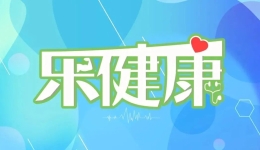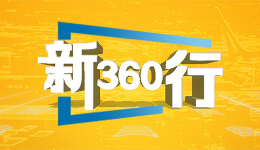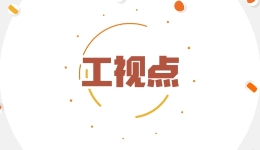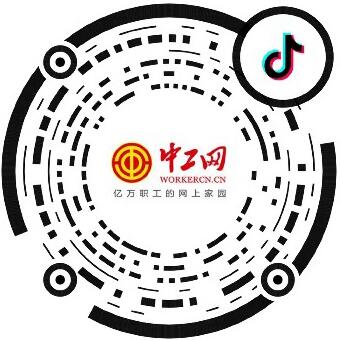Original title: Extended Case Analysis and People's Mediation
The purpose of people's mediation is to resolve disputes. The fundamental purpose of dispute resolution is to fundamentally resolve conflicts and pursue civilized and harmonious interpersonal relationships, not just to deal with disputes in time. In modern society, law is the main basis for dispute resolution, but law is the feature of social relations, not the external appendage imposed on society. In people's mediation, if only legal norms are considered and applied mechanically, it may be difficult for mediation to achieve the unity of the "three effects". The extended case analysis principle in legal anthropology can provide methodology for people's mediation to better realize the unity of "three effects". The application of the extended case analysis method in people's mediation makes it easier for mediators to "see more in-depth social relations, see the behavior of the parties in the 'resentment stage', see the parties' choice of communication channels and solutions, see the parties' control and use of power, and see the subsequent impact of the case handling results on the parties", So as to better resolve the deep-seated contradictions behind the disputes and achieve the unity of "three effects".
(I)
James Mitchell, a British anthropologist, used the extended case analysis method for the first time in "Yao Village: A Study on the Social Structure of a Malawi Tribe" published in 1965. The original version of the extended case analysis method refers to the expansion of the cause and effect of the case based on the "problem cases" with disputes and conflicts as the core, and the analysis of how the local people use the unofficial and informal negotiation settlement mechanism to deal with disputes in the tribes lacking formal dispute settlement mechanism.
However, if the extended case analysis method is placed under the perspective of people's mediation, the "lack of formal dispute resolution mechanism", "tribes" and other elements may be dispelled. It is necessary to give the expanded case analysis method new connotation in the new perspective. The refinement and generalization of methodology should be purposeful. In addition, the core content of the expanded case analysis method must meet the fundamental purpose of "fundamentally resolving conflicts". Therefore, the core content of the expanded case law is "not only to collect and investigate the case itself, but also to include the social context or scene of the case into the scope of investigation." In people's mediation, it is advisable to define the expanded case analysis method as, in order to achieve the fundamental purpose of "fundamentally resolving conflicts", focusing on the dispute itself, examining the causes and consequences, Comprehensive analysis method of law and natural and human relations.
(II)
In combination with the above definition of the extended case analysis method, specifically, in the people's mediation, "one vertical and one horizontal" should be taken as the longitude and latitude line to apply the extended case analysis method.
"One vertical": cause and effect
In people's mediation, disputes need to be examined from a historical perspective, and the "causes and consequences" of disputes need to be explored vertically.
The "antecedents" include the direct and indirect causes of disputes. Disputes may be caused by various reasons, which are related to each other, and some may be covered up by false phenomena. The legal field is more concerned about the direct causes of disputes. For the dispute resolution in general sense, although the direct cause directly led to the dispute, it may only be the "fuse" of the dispute. Therefore, in people's mediation, direct causes may not be as important as indirect causes. Mediators need to dig into the indirect causes of disputes as far as possible, find the deep-seated contradictions of disputes, so as to grasp the key to the problem and fundamentally solve the disputes.
"Consequence" includes the extended consequence of dispute resolution and follow-up of dispute resolution. First, in the process of people's mediation, there may be more than two solutions. Mediators should not only try their best to predict the possibility of different solutions for immediate settlement of disputes, but also try to consider the long-term effectiveness of different solutions for dispute resolution - "taking drastic measures" to resolve disputes, so as to achieve a real sense of "pacifying people". Second, after the people's mediation is completed, we can consider following up the dispute cases, investigating the mediation effect, and then reacting the analysis of the investigation effect to the mediation method, so as to constantly summarize and improve the mediation method.
"One horizontal": looking left and right
For a dispute, if we only think from one side, then we will only look at its surface, and the conclusions drawn are not objective, or even wrong. Therefore, from a horizontal perspective, in order to achieve the mediation effect in the people's mediation, it is also necessary to take the "strengths of all schools" and "look left and right".
"Left looking" means left looking at the law. In a country ruled by law, the stability of law is of great significance. Therefore, in people's mediation, mediators shall not violate the mandatory provisions of the law. Otherwise, on the one hand, it may lead to legal evasion through people's mediation, on the other hand, it will also lead to tension between national laws and people's mediation. At the same time, people's mediation should also make full use of the law, that is, taking the law as the basis for mediation, it is also possible to achieve the purpose of mediation and achieve good mediation results.
"Look right", that is, look right at "natural and human". The so-called "natural justice and human kindness" is the universally recognized truth. "Happiness, anger, sorrow, fear, love, desire and evil are not learned but can be" is human kindness. In the settlement of specific disputes, the law may not be the "first choice" of the parties, and it may just be "the tone of contention". In other words, the parties in the dispute are not necessarily rational, on the contrary, they may be dominated by emotion. At this point, the primary task of mediation is to dredge emotions, rather than empty facts and reason. After the parties' emotions are dredged, rational communication will be considered. In the same type of disputes, the parties may have similar feelings, or they may have common mediation methods. Therefore, it is possible to extract mediation methods to deal with such disputes, and then further explore the local resources of the rule of law.
(III)
The report of the 20th National Congress of the Communist Party of China pointed out that we must adhere to the supremacy of the people... We must stand firmly on the people's position, grasp the people's aspirations, respect the people's creativity, and focus on the people's wisdom, so as to form a theory that is loved, recognized, and owned by the people, and make it a powerful ideological weapon to guide the people to understand and change the world. The local resources of the rule of law not only exist in the past history, but also exist in various informal systems that have formed or are budding in contemporary society. In contrast, the current life practice is the "fertile field" of the local resources of the rule of law. In the process of building the rule of law, on the one hand, we should pay attention to the construction of the national formal legal system, on the other hand, we should pay attention to the exploration and selection of informal systems. We should respect the practical rationality of the people, think about problems from the practice of the people, analyze problems and rely on the practical activities of the people to solve problems.
People's mediation is at the forefront of dispute resolution, and has a broad world to explore "local knowledge". It has the possibility of applying non-state laws, and to a large extent can explore various informal systems, even including some "worldly wisdom". Compared with court judges, people's mediators also have more opportunities to "deal with" the parties, and can more deeply discover the "non legal factors" in dispute resolution.
Sharp tools make good work. The local resources of the rule of law are hidden in the practice of life, waiting for those who want to explore. The extended case analysis method of legal anthropology provides a powerful "shovel" for exploring local resources. Applying this method to dispute resolution through "one vertical and one horizontal", people's mediators can not only better realize the unity of "three effects", but also hope to dig out local resources of the rule of law and contribute to the "localization of the rule of law".
( Wen Xingping, Author's unit: Law School of Southwest University of Political Science and Law)














